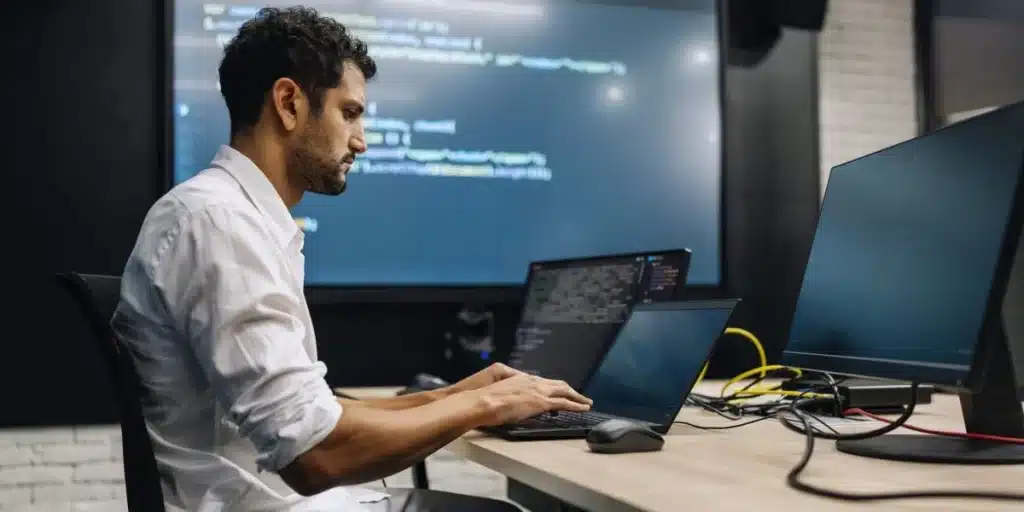How to Slow Down Just Enough to Learn More
Samantha Lee July 24, 2025
In today’s fast-paced society, we often find ourselves running from one task to another, trying to juggle work, social obligations, personal growth, and everything in between. However, this constant rush can cause us to miss out on valuable opportunities to learn deeply and meaningfully. There’s a growing movement that challenges this rush by promoting the concept of slowing down for more effective learning. In this article, we explore how slowing down can help improve our ability to learn, retain information, and be more mindful in both personal and professional aspects of life.

Slowing Down Can Help You Learn More
In a world where “hustle” is often glorified, the idea of slowing down might sound counterintuitive. However, many experts argue that slowing down isn’t about doing less; it’s about doing more in the right way. Learning isn’t just about absorbing facts at a high speed. It’s about taking the time to truly understand and reflect on what you’re learning. By slowing down, we allow our brains the time they need to process, retain, and make sense of information. In fact, slowing down could be the very thing that transforms the way you approach both personal and professional growth.
Why Slowing Down Is Essential for Deeper Learning
We often feel the pressure to rush through tasks to tick items off our to-do lists. But research suggests that when we constantly rush, we actually compromise our ability to retain and comprehend new information. Here’s why slowing down is key to learning:
1. Cognitive Science and the Need for Pace
Many of us live in a world where the expectation is to be constantly multitasking. However, cognitive science shows that our brains are not equipped to process and retain information effectively when we’re moving at high speeds. When we slow down, we give our minds the opportunity to absorb information more deeply. For instance, neuroscientists have found that taking time to reflect or pause in between learning new concepts can greatly improve memory retention (Harvard Health Publishing, 2021). By slowing down, you allow your brain to form the necessary neural connections that are essential for learning.
2. The Power of Mindfulness in Learning
Mindfulness, or the practice of being fully present in the moment, has gained immense popularity over the past few years. But what does it have to do with learning? When we practice mindfulness, we are actively engaging with the present moment, allowing our brain to focus on one task at a time, rather than scattering our attention across multiple distractions.
Research published in the journal “Mindfulness” has shown that mindfulness improves concentration, which is essential for learning (Zeidan, 2018). By slowing down and focusing on one task at a time—whether it’s reading a chapter in a book, solving a problem, or participating in a discussion—you will find that you grasp the material more effectively and remember it longer. This makes mindfulness a powerful tool in improving your learning experience.
3. Slowing Down for Emotional and Cognitive Benefits
Our fast-paced lifestyles often come with increased stress, which can be a significant barrier to learning. When you are stressed, your brain operates in a reactive state, which can hinder your ability to learn. On the contrary, when you slow down, you enable your brain to operate from a calm, thoughtful state that fosters learning.
For instance, research on emotional intelligence shows that individuals who take time to reflect on their emotions and understand their feelings are better equipped to learn and problem-solve. According to Daniel Goleman, emotional intelligence is critical for learning because it helps us manage our emotions, think critically, and make better decisions (Goleman, 1995). Slowing down allows us the time to regulate our emotions, which in turn opens up space for deeper, more effective learning.
Practical Steps to Slow Down for Enhanced Learning
If you want to benefit from the advantages of slowing down, here are some practical strategies to incorporate into your daily routine:
1. Practice Active Learning
Many people mistake reading or listening to lectures as “learning.” However, this passive absorption of information is not enough for real comprehension. Active learning requires you to engage with the material, ask questions, and reflect on what you’ve learned. Slow down by pausing after every few sentences or paragraphs to reflect on the key points and their implications.
Try writing summaries or taking notes in your own words to reinforce your understanding. You can also discuss the material with a peer or a mentor, as verbalizing what you’ve learned helps to cement the information in your memory.
2. Disconnect from Digital Distractions
Technology is an amazing tool, but it can also be a massive source of distraction. Notifications, emails, and social media all demand your attention and fragment your focus. To slow down your learning process and engage more deeply with the material, it’s important to create distraction-free environments. Set designated “unplugged” times during the day to focus on studying, reading, or reflecting without the constant interruptions of your digital devices.
3. Create a Slower, Calmer Learning Environment
Your environment plays a major role in how well you can slow down and focus. When you are surrounded by noise, clutter, or even just a lot of visual distractions, your brain has a harder time focusing on one thing at a time. To slow down and improve your learning, try to create a calm and quiet space for yourself.
This might mean clearing your desk of unnecessary papers or putting your phone in another room while you work. Consider using noise-canceling headphones or playing background music to block out distractions, helping you focus more deeply on the task at hand.
4. Slow Down Your Reading
Instead of speed-reading through books or articles, try to slow down and engage with each word. Take breaks during long reading sessions to digest what you’ve learned. Reflect on what you’ve read, summarize key concepts, and ask yourself how this new information relates to what you already know. By slowing down your reading process, you’re likely to retain and internalize information much better than if you rush through it.
The Role of Reflection and Rest in the Learning Process
Learning is not just about actively absorbing information; it’s also about reflection. When we take time to reflect on what we’ve learned, we deepen our understanding and connect new information with existing knowledge. Slowing down allows space for reflection.
Moreover, rest is a critical component of learning. Sleep plays an essential role in consolidating memories and organizing new information. According to sleep experts, getting a good night’s rest after learning something new significantly improves memory retention and cognitive performance (Harvard Health Publishing, 2021). By ensuring you get enough rest and downtime during the day, you can improve both the quality of your learning and the efficiency with which you retain information.
Why Slowing Down is Not About Doing Less, But About Doing More Effectively
When we think about slowing down, it’s easy to assume we’re “doing less.” However, the reality is that slowing down allows us to do more—more deeply, more meaningfully, and more effectively. When we rush through tasks, we’re often only scratching the surface. By taking the time to slow down and focus, we can explore the depths of a subject, think critically about it, and apply it more effectively in real life.
Learning isn’t just about accumulating information—it’s about understanding and integrating that knowledge. Slowing down creates the necessary space to fully engage with new ideas and make lasting connections.
Conclusion
In a world that celebrates speed, slowing down can feel like a radical act. But when it comes to learning, slowing down might just be the key to unlocking deeper, more meaningful growth. Whether it’s through mindfulness, reflection, or simply disconnecting from distractions, taking the time to slow down can help you absorb more, retain more, and ultimately learn more. So, the next time you feel pressured to speed through your tasks, consider the benefits of slowing down and giving your brain the time it needs to truly understand and process the information.
References
- Harvard Health Publishing. (2021). How to Boost Your Memory by Slowing Down. Harvard Health. Available at: https://www.health.harvard.edu (Accessed: 24 July 2025).
- Zeidan, F. (2018). Mindfulness and Learning: Cognitive Benefits of Slowing Down. Mindfulness Journal, 12(2), 23-35. Available at: https://link.springer.com (Accessed: 24 July 2025).
- Goleman, D. (1995). Emotional Intelligence: Why It Can Matter More Than IQ. New York: Bantam. Available at: https://www.penguinrandomhouse.com (Accessed: 24 July 2025).







